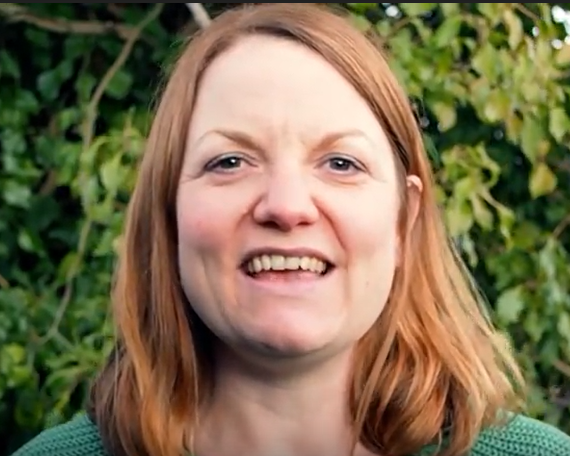“I am choosing to open my eyes whilst I talk to you”. How much appreciation do you have for the choices we make in every moment of the day? We explore how this benefits us here.

Out of control? Here’s how to get it back
It was a couple of my clients recently saying their big changes and shifts in thinking from coaching have been around “control” that sparked this post.

I decided to write about what I know about it as a human behaviour. I hope it’s a helpful view, and keen to hear comments.
Here’s an interesting thing about control. In a professional setting, generally, we manage to control our emotions. For example, in conversation with someone not in agreement with our suggestions, being opposed to others plans or not liking a certain attitude. We control (or manage) our responses. OK, we might have to bite our tongue, but more often than not, we remain composed.
So, how is it that, when faced with a troublesome teen, well-meaning mother or good-intentioned partner, this ability to exercise control leaves us? Emotions and language all flying in an uncontrolled manner?
So, with the people we care about MOST, we have the shortest temper. We are CHOOSING not to use that skill that we so frequently use at work?
Who is screaming – “but it just happens, something snaps inside me”? BUT, how is that situation different? How do you stop yourself in a work setting?
It is an interesting concept, and one to take a moment to think on for yourself. Tap into that insight, and you could be onto a winner at home!
What do we actually mean by control? Is the “need for control” different to a “sense of control”? If we control things too much (need), when they don’t happen as we expect them to, it can have devastating effects. From this perspective, its about the level of control we feel (sense) is needed, and being flexible when we don’t feel in control, or have choice.
Or, is it, the extent to which we BELIEVE we have control? and as in the above example, who the control is placed on? Where is the focus of that? Internal, or external?
In a queue of traffic, there are generally two types of driver. The one that keeps within a millimetre of the car in front determined not to let anyone in. They’re sure it will impact their time to destination. Any incident not to their favour on this journey is likely to result in high emotions, impacting mood and behaviour hours after arrival.
In the other camp, we have the more collaborative ones. The drivers who recognise that letting a car or two out of a junction or merge in turn around a breakdown, won’t affect their time too much. They conversely, arrive at their location feeling good to have helped someone out along the way.
What is the difference? Our chosen response to an external event, has changed our approach.
E+R=O (Event + Reaction/Response = Outcome)
Jamil Qureshi

The origination of that little equation comes from an event early on in Michael Phelps sporting career. Having trained for years for the Olympic swimming event, after starting the race, his goggles slipped. He CHOSE (responded) to carry on swimming for his life, regardless of his goggles having slipped out of place. He picked up a GOLD medal at the Olympics for the first time ever, and we all well know, continue to win many more to boot. Imagine what might have happened had he “reacted” and thrown in the towel? We may not even know his name!
There is always a choice on how we choose to behave and what to do, in any given circumstance.
SO, what choice do you have, that you maybe aren’t clear on ?
What control do you have over your actions, REALLY?
We could say this is about having an internal, versus an external view. When we are able to see that although we have no control over external events, but that we can control our responses to them, things feel a little more comfortable. This is defined as having an internal locus of control. It means we are internally making a choice, or choosing a response, to external events, rather then adopting a “helpless” approach. So, choosing how to respond to events, rather than feeling like they are “done to you” is a very helpful attitude to develop. It takes practice to build this muscle, but simply keeping this thought in mind goes some way to helping. Where could you practice this?
A couple of studies I found interesting were a Cambridge University study, which looked at what protects people from mental health outcomes. They found a “sense of control”, but also a “sense of meaning and purpose” (another whole topic to explore later!). I mentioned the troublesome teen earlier, and here’s another study that found that a perceived sense of control was actually protective against mental health problems in parents.
For the work that I do with people, I refer to these two key pieces of work:
- Human Givens Emotional Needs: the specific Emotional Need is “Autonomy & Control – having the volition to make responsible choices”
- WrawIndex (this is a psychometric tool measuring Workplace Resilience and its impact on Wellbeing): “Future Focus – Personal Control – Seeking and believing you have personal control over your situation”.
For more on internal/external locus of control, click here for ideas to try out.
What will you make a conscious CHOICE on today?

Sheela Hobden is a Coach at bluegreen Coaching. Following her own mental health battles, she now coaches individuals, runs training sessions and speaks at conferences. She has a real passion for helping medics and healthcare professionals take as much care of themselves as they do their patients in whatever life or career conundrums they face! She is also a Mentor Coach and Coach Supervisor. She has a PGCERT in Business and Personal Coaching, holds PCC member status with the ICF and is CIPD qualified. She challenges herself with ultra distance running and Ironman. Find her at www.bluegreencoaching.com or swimming in the sea, in Poole, Dorset
Get more ideas and tips by joining her newsletter tribe – sign up below!
Better still, book in to speak with her directly?
